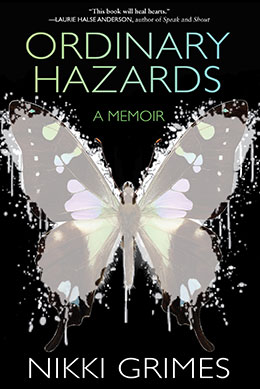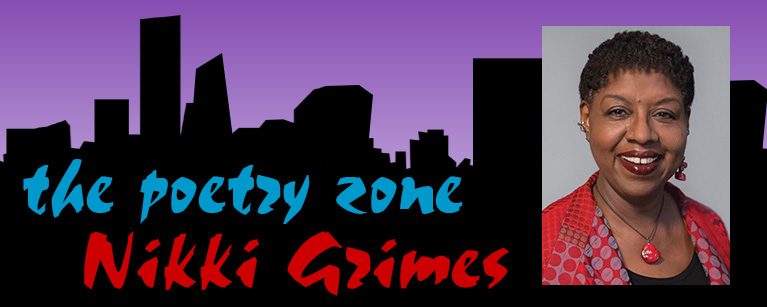 When I was a teen, I’d have given anything for a book like Ordinary Hazards. Of course, it hadn’t yet been written. What I did discover back then was A Tree Grows in Brooklyn by Betty Smith. In her novel, I found Francie, a character I resonated with deeply. We weren’t of the same race, nor were our lives a perfect replica, by any stretch. Still, Smith’s character and I both faced tough challenges in our young lives, and like me, Francie knew the color of hell by heart. Because of her story, I knew that I wasn’t alone in the world, and knowing that gave me strength for my own journey. This is the power of story. This is why I became a purveyor of story, myself.
When I was a teen, I’d have given anything for a book like Ordinary Hazards. Of course, it hadn’t yet been written. What I did discover back then was A Tree Grows in Brooklyn by Betty Smith. In her novel, I found Francie, a character I resonated with deeply. We weren’t of the same race, nor were our lives a perfect replica, by any stretch. Still, Smith’s character and I both faced tough challenges in our young lives, and like me, Francie knew the color of hell by heart. Because of her story, I knew that I wasn’t alone in the world, and knowing that gave me strength for my own journey. This is the power of story. This is why I became a purveyor of story, myself.
Over the course of my long career, I’ve written fiction, nonfiction, historical fiction, and poetry on a wide variety of subjects, but the one thing I’ve always believed is that the single most important story I have to tell is my own. Ordinary Hazards, my memoir in verse, is that story. It is a story of darkness and childhood trauma, of a parent’s alcoholism and mental illness, of the seamy side of foster care, and of sexual assault. But it is also a story of love and light, of faith and grace, and of a young girl’s discovery of the power of the written word.
Mine is a story of triumph over darkness, and, as such, is ultimately a story of hope. The possibility of planting seeds of hope in the hearts and minds of young readers is why I wrote Ordinary Hazards. As agonizing as it was to rip open the wounds of memory, I knew there were young people who needed a story like mine—and a true story, at that. And thousands of readers across the country have already been inspired by it. This is why I was stunned when I learned that a school district in Leander, Texas, had elected to remove my award-winning memoir from their curriculum.
What???
It is one thing to rip a book from your own teen’s personal library, but to interfere with every other teen’s access to that book throughout your school district goes beyond the pale.
Leander’s issue with Ordinary Hazards—and Jacqueline Woodson’s Red at the Bone, and Laurie Halse Anderson’s Shout, among other titles recently removed—is that these titles are considered to have “inappropriate content.” I’m assuming the content in question in Ordinary Hazards is difficult subject matter, namely alcoholism, sexual assault, and mental illness. Difficulty, though, is no reason to remove a book from an age-appropriate reader’s easy reach.
The truth is, the lives of many teens are difficult. Some are homeless, or have parents in prison, or have been bounced from one foster home to another—or all of the above. Other teens live, as I did, in homes where a parent wrestles with mental illness or alcoholism, or may struggle with these issues themselves. Finally, though you may be unaware, countless teens of every gender, sitting in high school classrooms right now, have been sexually assaulted. Is this subject uncomfortable? Absolutely. But writing about the topic is hardly inappropriate, especially when it’s handled delicately.
Censors will find nothing salacious, graphic, or gratuitous in Ordinary Hazards. I specifically chose to write my memoir in poetry because the form allows for the delicate treatment of difficult content. As such, no one can reasonably charge the writing itself of being inappropriate. When it comes to sexual abuse, what is inappropriate—not to mention criminal—is the abuse itself. Writing about that abuse is both appropriate and necessary. Teens need to know that sexual assault is not a secret to keep.
For readers who come to this memoir having had any of the particular tough experiences I write about, this story lets them know they are not alone. Other readers encountering Ordinary Hazards come away with something equally valuable: the knowledge that, whatever challenges they may face in life, they can come out on the other side, and not only survive, but thrive—just as I did. Do we really want to restrict young people’s access to a story that holds out that kind of hope?
Perhaps some have forgotten the purpose and power of Story. Story is more than repository of fact and fiction. Story is poultice, is salve designed to mitigate pain and stimulate the healing of wounds, especially those festering beneath the surface unseen. But this meticulously crafted treatment only works when applied.
Not every story is dark or difficult, nor should it be, but those that most often inspire are hard stories in which the protagonist triumphs at the end. Ordinary Hazards: A Memoir is such a story, and there’s nothing inappropriate about that.
__________________
First published in the 8/30/21 edition of Publishers Weekly as “Appropriately Yours,” as well as the 8/27/21 online edition of Publishers Weekly under the title of this article.


